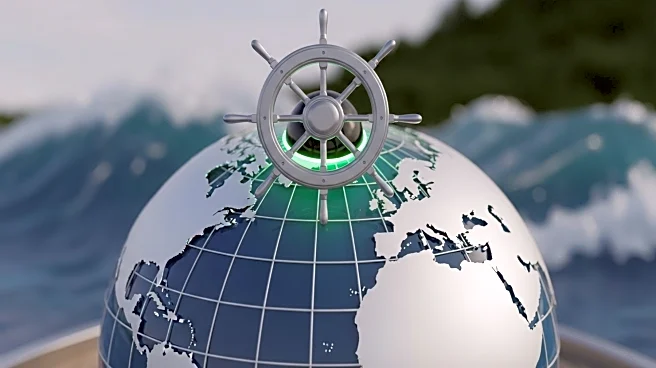What's Happening?
The International Maritime Organization (IMO) is preparing for its Green Summit, where the global shipping industry will be under scrutiny for its greenhouse gas emissions. Industry leaders are advocating for clear global fuel standards and a greenhouse gas levy to reduce the sector's climate footprint. The IMO has drafted a Net-Zero Framework targeting ocean-going ships, aiming for net-zero emissions by 2050. The framework includes mandatory emission limits and a GHG pricing mechanism, with enforcement expected to begin in 2027.
Why It's Important?
The shipping industry is responsible for approximately 3% of global greenhouse gas emissions, comparable to major industrial nations. The IMO's proposed regulations could significantly impact global trade, shipping costs, and environmental policies. Companies supporting the framework argue that it is essential for a level playing field and a just transition to greener maritime technology. However, opposition from the U.S. highlights potential economic and political challenges, as the country warns of undue burdens on its shipping and consumer sectors.
What's Next?
The IMO Green Summit will focus on finalizing global fuel standards, enforcing a greenhouse gas levy, and revising the Carbon Intensity Indicator. The industry must balance climate ambition with fairness and practical constraints. The outcome of the Summit could set a precedent for international cooperation on environmental regulations, influencing future policies and technological advancements in the maritime sector.
Beyond the Headlines
The Summit's decisions may drive innovation in low-carbon maritime technologies and fuel alternatives. It could also lead to increased investment in sustainable shipping practices and infrastructure. The global nature of the shipping industry necessitates collaboration among nations, highlighting the importance of international agreements in addressing climate change.









